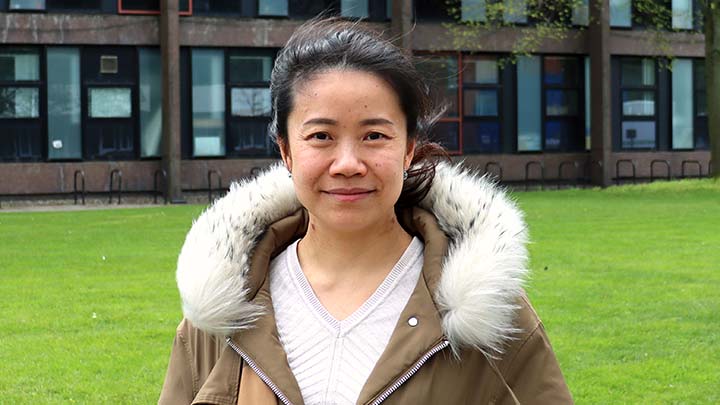Exploring the health of global gig workers
Gig working has exploded across the world in the last few years, fuelled by the effects of the COVID-19 pandemic and the growth of apps enabling people to access a variety of services online. However, such rapid growth has meant that the health and safety implications for gig workers themselves haven't yet been fully explored. Research in this area has been taking place at The University of Manchester.

Gig workers are people who work in a freelance capacity as and when demand for their services requires it, such as couriers and drivers.
They do not hold traditional contracts with the companies they perform work for, as they are paid for each task they complete rather than for the amount of time worked, often working long or unconventional hours. There is often no line management and work is usually allocated via an app, the most well-known examples including Uber and Deliveroo.
Mental health and wellbeing
In the Faculty of Biology, Medicine and Health at Manchester, occupational health researchers Martie Van Tongeren and Hua Wei have been examining the impact of gig working on health and wellbeing in both the UK and China, a previously neglected area in terms of research.

Professor Martie Van Tongeren
Martie is a Professor of Occupational and Environmental Health at The University of Manchester.
The idea for their research, which involves both qualitative and quantitative methods, came on a trip to China, where there are thought to be around 84 million gig workers. It is also estimated that there were around 7.25 million gig workers in the UK as of the end of 2022, accounting for almost a quarter of the total UK workforce.
"Our qualitative work in China identified a number of working conditions of the couriers that had an impact on their health and wellbeing - work demands and the way that work is distributed," Martie explains.
Work-related stress can be significant for gig workers who are under pressure to complete tasks as quickly as possible. Combined with the impact of an environment heavily oriented around customer feedback and the isolation of undertaking work alone rather than with co-workers, this pressure could lead to mental health problems and burnout – and potentially an intention to quit.
This can be further compounded by worries over pay and the rising cost of living, particularly if workers rely on gig working for a large proportion of their overall income.
"When the proportion of income coming from app-based work increases, they tend to be more stressed," Hua says.

The key question to answer here is whether being app-based and hence subjected to algorithmic management has rendered work stress, burnout and other safety issues more likely.
"Obviously both app-based work and office-based work can provide stressful situations, but what we want to look at in further research is whether we can separate it out – can we identify whether there's something unique about the technology that increases the risk of burnout and stress? And we want to do that both in the UK and again in China and other countries, because gig working, algorithmic management or AI (artificial intelligence) at work is really a global phenomenon," Martie says.
Working globally
The fact that the research is being undertaken in both the UK and China means that Martie and Hua are able to compare gig working and the effects it has on workers in both countries. Although the two cultures are very different, there may be things that the UK can learn from how gig working has impacted on health and wellbeing in China.
"Technology innovation is going a lot quicker in China in a way that it isn't in the UK," Hua says. "We can probably learn some lessons and prevent the health and safety issues that are happening there, here in the UK and globally."
The China-based research has involved collaboration with institutions such as Peking, Hong Kong and Beijing Normal universities, the National Center for Chronic and Noncommunicable Disease Control and Prevention, and China National Center for Occupational Safety and Health.
As well as this, Martie and Hua have been working with colleagues from other areas in The University of Manchester, including social science, health informatics and work psychologists.
"That's a real strength of Manchester: the fact that it's a large university that can bring together all these different disciplines that are really essential to target a complex issue like this," Martie says.
Hua adds: "It's a very supportive environment in terms of collaborative international projects."

Developing an intervention
While Martie and Hua are still undertaking their research and are looking for opportunities to expand the scale of their work, they have one particular end point in mind for their activities: developing interventions to help gig workers combat the negative impact of their jobs on their health.
Ironically, such interventions could come in the form of an app or other technology.
"Interestingly, you're looking at AI and algorithms as a problem, but in a sense they may also inevitably lead to the solution for increasing occupational health support," Martie explains.
"It's an interesting part of the work: asking how we can limit the impact, and whether that same technology can be used to improve health and wellbeing."
Learn more about global health collaborations at Manchester.

